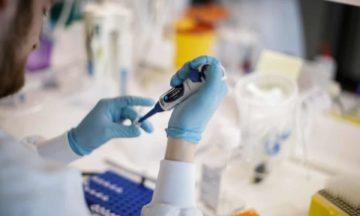Sharon Peacock in The Guardian:
 It was always predictable that the genome of Sars-CoV-2 would mutate. After all, that’s what viruses and other micro-organisms do. The Sars-CoV-2 genome accumulates around one or two mutations every month as it circulates. In fact, its rate of change is much lower than those of other viruses that we know about. For example, seasonal influenza mutates at such a rate that a new vaccine has to be introduced each year.
It was always predictable that the genome of Sars-CoV-2 would mutate. After all, that’s what viruses and other micro-organisms do. The Sars-CoV-2 genome accumulates around one or two mutations every month as it circulates. In fact, its rate of change is much lower than those of other viruses that we know about. For example, seasonal influenza mutates at such a rate that a new vaccine has to be introduced each year.
Even so, over time the virus population will accumulate a fair few mutations in different combinations. The striking feature of the Sars-CoV-2 lineage 1.1.7 that we discovered here at the Covid-19 Genomics UK Consortium (familiar now from headlines as the “new variant”), is that its genome has a large number of mutations compared with other lineages we’ve picked up in the UK. It has a total of 23, which is what sets it apart.
Most mutations aren’t concerning because they don’t result in a change in one of the amino acids that generate the proteins the virus is made from. When they do, that’s worthy of serious attention, especially when the mutations (or deletions) occur in a region of the virus that could change the way that it interacts with its human host.
More here.
